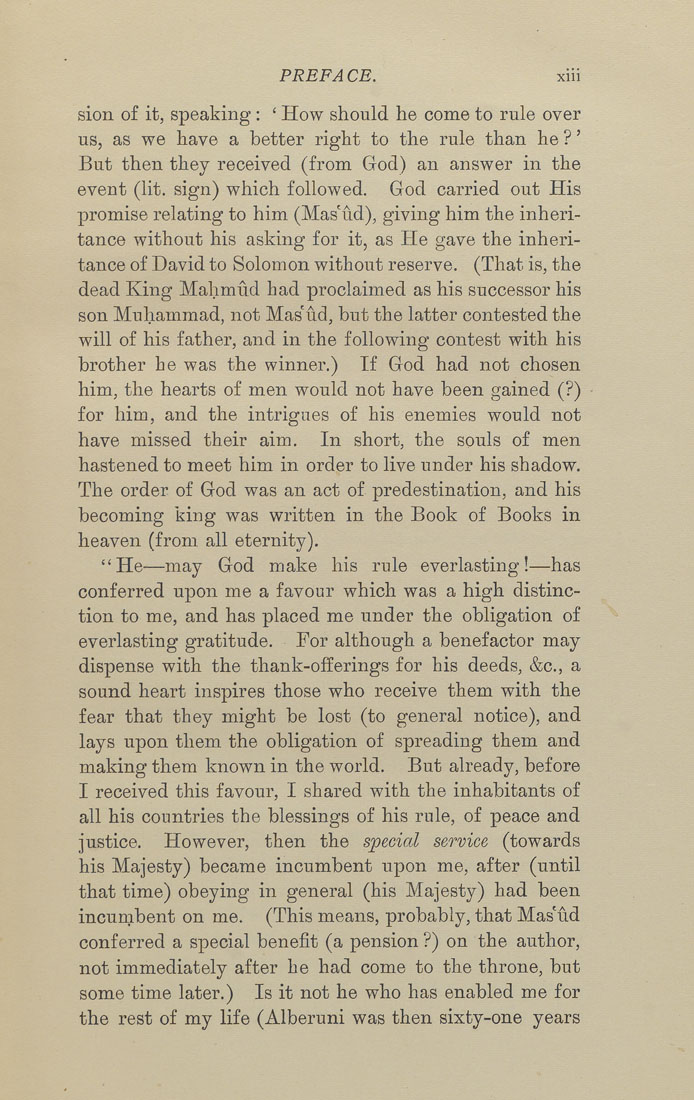Bīrūnī, Muḥammad ibn Aḥmad, Alberuni's India (v. 1)
(London : Kegan Paul, Trench, Trübner & Co., 1910.)
|
||
|
|
|
|
| Page xiii |

PREFA CE. xiii sion of it, speaking : ' How should he come to rule over us, as we have a better right to the rule than he ?' But then they received (from God) an answer in the event (lit. sign) which followed. God carried out His promise relating to him (Mas'iid), giving him the inheri¬ tance without his asking for it, as He gave the inheri¬ tance of David to Solomon without reserve. (That is, the dead King Mahmud had proclaimed as his successor his son Muhammad, not Mas'ud, but the latter contested the will of his father, and in the following contest with his brother he was the winner.) If God had not chosen him, the hearts of men would not have been gained (?) for him, and the intrigues of his enemies would not have missed their aim. In short, the souls of men hastened to meet him in order to live under his shadow. The order of God was an act of predestination, and his becoming king was written in the Book of Books in heaven (from all eternity). "He—may God make his rule everlasting!—has conferred upon me a favour which was a high distinc¬ tion to me, and has placed me under the obligation of everlasting gratitude. For although a benefactor may dispense with the thank-offerings for his deeds, &c., a sound heart inspires those who receive them with the fear that they might be lost (to general notice), and lays upon them the obligation of spreading them and making them known in the world. But already, before I received this favour, I shared with the inhabitants of all his countries the blessings of his rule, of peace and justice. However, then the specicd service (towards his Majesty) became incumbent upon me, after (until that time) obeying in general (his Majesty) had been incumbent on me. (This means, probably, that Mas'ud conferred a special benefit (a pension ?) on the author, not immediately after he had come to the throne, but some time later.) Is it not he who has enabled me for the rest of my life (Alberuni was then sixty-one years |
| Page xiii |







